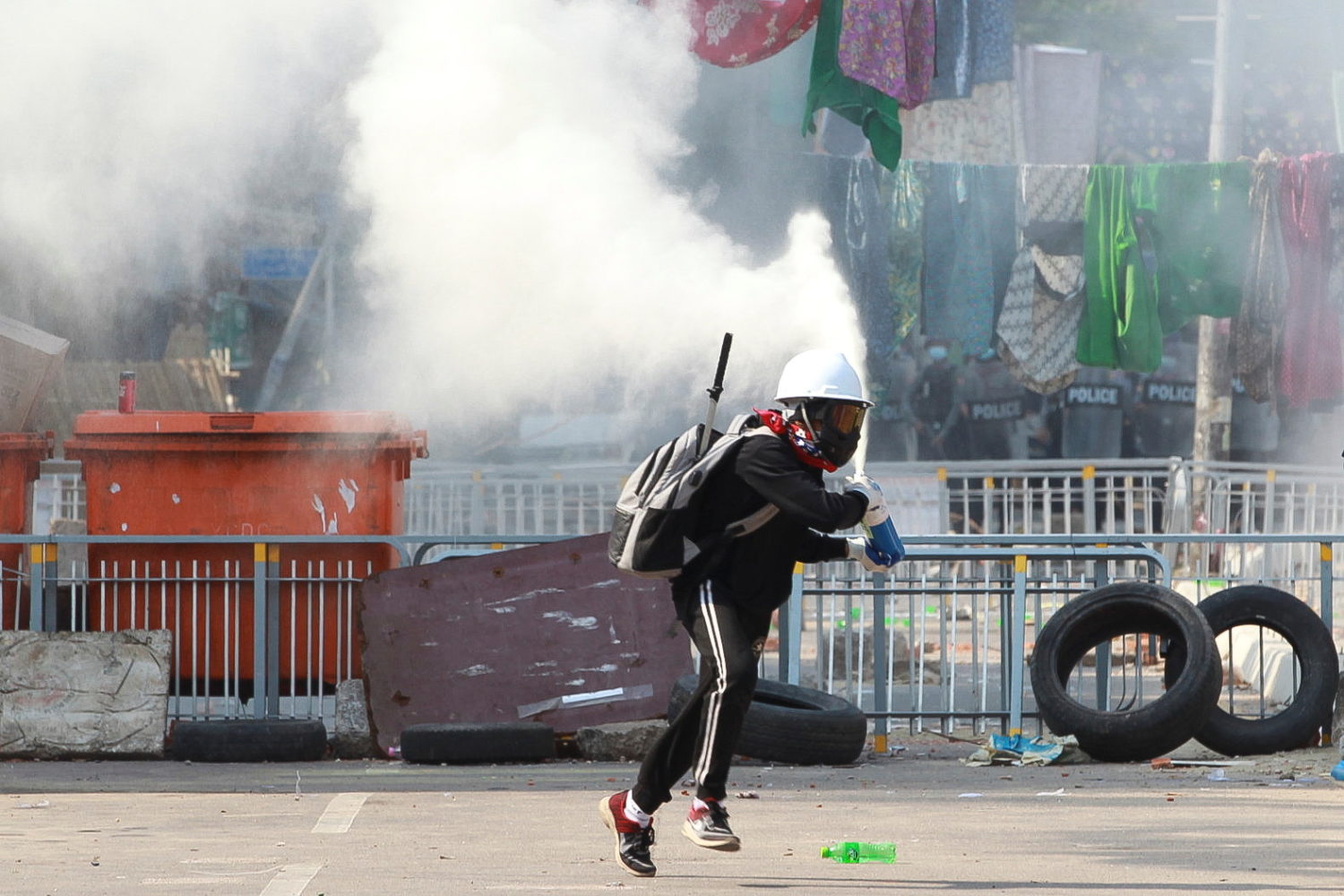
(Reuters) – An official from deposed Myanmar leader Aung San Suu Kyi’s National League for Democracy (NLD) died in custody after he was arrested early on Tuesday, the second party figure to die in detention in two days, as security forces broke up street protests against the military junta.
Police also cracked down independent media, raiding the offices of two news outlets and detaining two journalists.
Myanmar has been in crisis since the army ousted Suu Kyi’s elected government in a coup on Feb. 1, detained her and other NLD officials, and set up a ruling junta of generals.
The NLD’s Zaw Myat Linn died in custody on Tuesday after he was arrested in the country’s main city of Yangon around 1:30 a.m., said Ba Myo Thein, a member of the dissolved upper house of parliament.
“He’s been participating continuously in the protests,” Ba Myo Thein said. The cause of death was not clear.
Neither the military nor the police responded to calls for comment.
Zaw Myat Linn is the second NLD official to have died in custody in the last two days. Khin Maung Latt, who had worked as a campaign manager for an NLD MP elected in 2020, died after he was arrested on Saturday night.
Police broke up scattered demonstrations in Yangon – the former capital and still the main city – and other towns across Myanmar with tear gas and stun grenades on Tuesday.
At least two people were wounded, one by a gunshot, in the town of Mohnyin in the north, local media said.
Witnesses said two journalists from Kamayut, an independent media company, were arrested, while the military raided the offices of Mizzima News in Yangon.
Live footage posted to social media also showed a raid after nightfall on the offices of the Democratic Voice of Burma (DVB).
A day earlier, the junta stripped Mizzima, DVB, and three other outlets of their licenses. They had all been active in covering protests against the coup.
At least 35 journalists have been arrested since the Feb. 1 coup, Myanmar Now reported, of which 19 have been released.
The U.S State Department said it “strongly condemned the junta for the… violent crackdowns on those peacefully taking to the streets and on those who are just doing their jobs, including independent journalists who have been swept up.”
Daily protests against the coup are being staged across the country and security forces have cracked down harshly. More than 60 protesters have been killed and more than 1,800 detained, the Assistance Association for Political Prisoners (AAPP), an advocacy group, has said.
CAUGHT IN A TRAP
Overnight, police arrested about 50 people who had been cornered by security forces in a district of Yangon, a rights group said. But hundreds managed to escape the encirclement after crowds of demonstrators rallied in their support in defiance of a night-time curfew.
Western powers and the United Nations had called on the military to allow the youths to leave the area in safety.
Activist Shar Ya Mone said she had been in a building with about 15 to 20 others, but was able to get home after people gave our free car rides and welcomed protesters.
She said she would keep demonstrating “until the dictatorship ends”.
The army has justified the coup by saying that a November election won by the NLD was marred by fraud – a claim rejected by the electoral commission. It has promised a new election, but has not said when that might be held.
International powers have condemned the takeover, which derailed a slow transition to democracy in a country that has been ruled by the military for long periods since independence from Britain in 1947.
The junta said on Tuesday it was recalling its ambassador to Britain a day after he urged them in a statement to release Suu Kyi, state media reported.
The MRTV news channel said Kyaw Swar Min, one of several ambassadors to publicly break from the military line, had released the statement without following orders.
The military has brushed off condemnation of its actions, as it has in past periods of army rule when outbreaks of protest were bloodily repressed.
It is also under pressure from a civil disobedience movement that has crippled government business and from strikes at banks, factories and shops that have shut much of Yangon this week.
The European Union is preparing to widen its sanctions to target army-run businesses, according to diplomats and two internal documents seen by Reuters.
(Reporting by Reuters Staff; Writing by Ed Davies, Raju Gopalakrishnan and Poppy McPherson; Editing by Timothy Heritage and Angus MacSwan)


